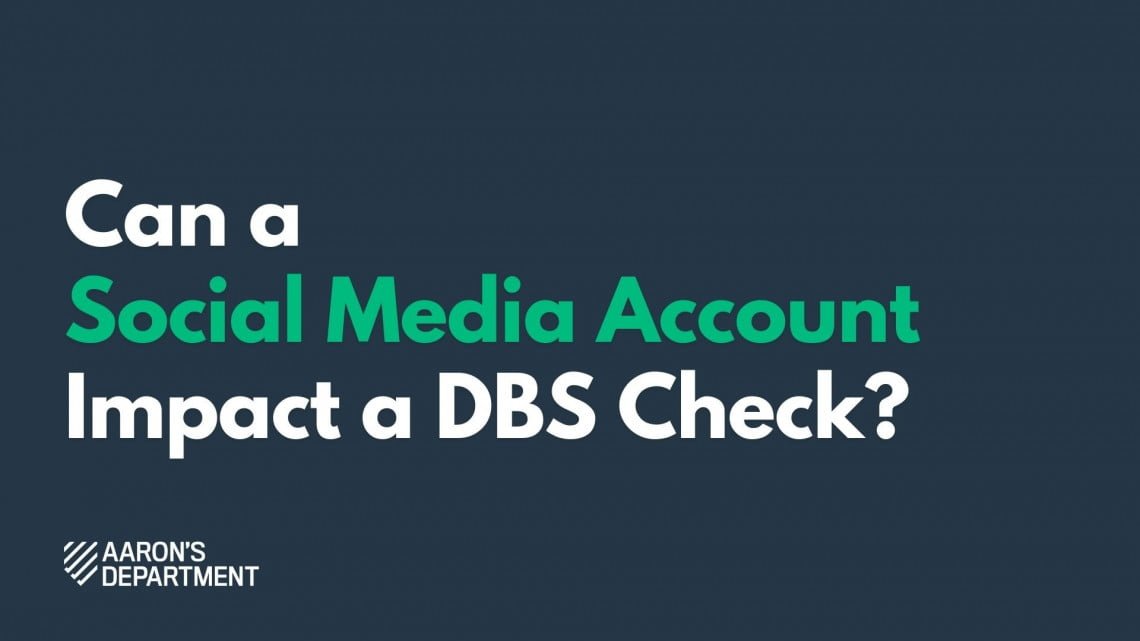Can social media impact DBS check? Well, in the 21st Century, social media has a larger presence than ever and gives users the ability to comment and interact with other account holders, including celebrities, brands, and ‘normal’ users.
Being behind a screen can give some people the feeling of power, and freedom to say whatever they want – no matter how offensive or wrong it may be. But saying something bad on social media, will not show on your DBS check, UNLESS you have been charged or convicted of a crime.


Serious Online Offences
Within the UK, the laws implemented to prosecute social media content are very outdated, with the newest being the Communications Act 2003. With the likes of Facebook and Twitter coming into existence after 2004, this law, nor the preceding ones, did not consider what could happen in these new online communities.
However, the Communications Act 2003, and the Malicious Communications Act 1988 do contain legislation against promoting terrorist groups online, harassing or threatening individuals and identifying someone that a court has ordered to keep anonymous.
Therefore, if an individual were to be found guilty because of a social media post under any of these legislations, then the crime would appear on a DBS check, just like any other conviction would.
Spent or Unspent Convictions
Convictions are split into two categories: spent and unspent.
Unspent convictions are convictions and cautions that have not reached a point where they should be considered to ‘have never happened’.
Spent convictions, on the other hand, have surpassed a certain amount of time, and employers are advised to treat the individual as though the conviction never happened.
Some convictions will never become spent, such as terrorism, or sexual offences.
Whether a social media offence would appear in which category, will depend on the type of crime, and how long ago it was committed.
Non-Crime Hate Incidents
A widely controversial subject, non-crime hate incidents on social media are posts which someone has complained to the police about, and it may have been recorded on their local database.
This means that even if no crime has been committed, there is a possibility (depending on the police force) that this may appear on local records.
Whilst what was said may be morally wrong, it does not make it illegal and a criminal offence – so, therefore, should it be recorded on the local police database?
Earlier in 2020, it was reported that police have recorded around 120,000 non-crime hate incidents. Even though the police have acknowledged that these incidents are not crimes, the fact they have logged them onto any local record means they can appear on certain DBS checks.
Which DBS Checks Would Non-Crime Hate Incidents Appear On?
The only type of DBS check an employer can do that will include local police force records is an Enhanced DBS check. Therefore, if an individual has been reported for a non-crime hate post, there is a chance this information will appear here.


Social Media Impact DBS Check. The Wrap-Up
So, in summary, to answer the question, does social media impact DBS check results? It depends on just how serious the social media post was, and if it was reported, whether it appears on a DBS Check.
However, if you are concerned about what your potential employees are posting online, a quick Google of their name or a check on Facebook will often help you find whatever you need to know!
Want to get started applying for your staff’s DBS applications? No worries, you can do so by clicking the buttons in the top right to get started today!
Want to read more? Why not look at one of our latest articles on DBS checks, Viewing your DBS Check Status, or Do Driving Offences show on a DBS check.
